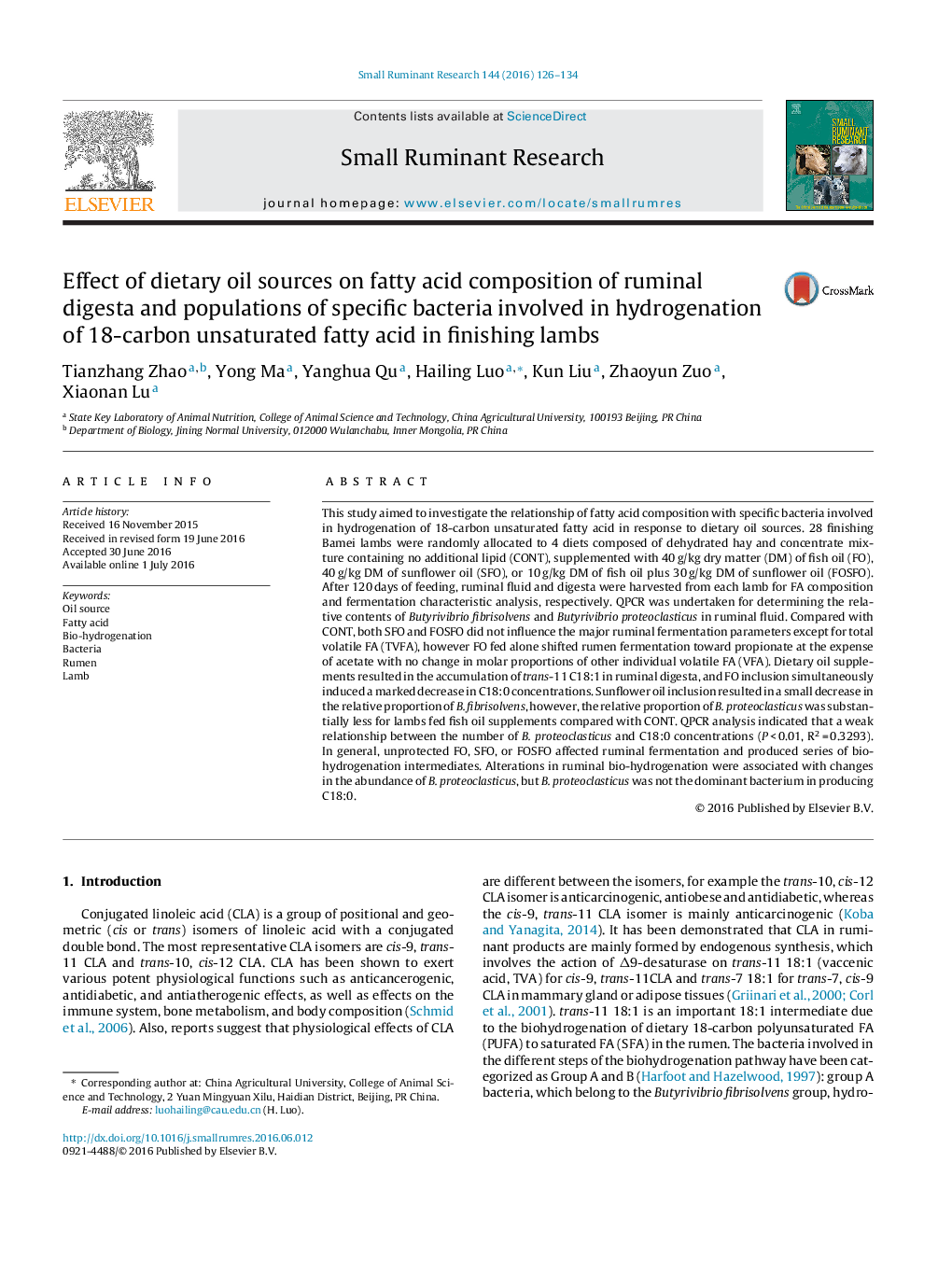| کد مقاله | کد نشریه | سال انتشار | مقاله انگلیسی | نسخه تمام متن |
|---|---|---|---|---|
| 5795294 | 1554348 | 2016 | 9 صفحه PDF | دانلود رایگان |
- Fatty acid composition of ruminal digesta was altered in response to dietary oil sources.
- Numerous 20- to 22-carbon intermediates were induced by dietary oil inclusion.
- Fish oil induced a marked decrease in C18:0 concentrations in ruminal digesta.
- The actions of B. proteoclasticus and B. fibrisolvens were evaluated by qPCR.
This study aimed to investigate the relationship of fatty acid composition with specific bacteria involved in hydrogenation of 18-carbon unsaturated fatty acid in response to dietary oil sources. 28 finishing Bamei lambs were randomly allocated to 4 diets composed of dehydrated hay and concentrate mixture containing no additional lipid (CONT), supplemented with 40Â g/kg dry matter (DM) of fish oil (FO), 40Â g/kg DM of sunflower oil (SFO), or 10Â g/kg DM of fish oil plus 30Â g/kg DM of sunflower oil (FOSFO). After 120Â days of feeding, ruminal fluid and digesta were harvested from each lamb for FA composition and fermentation characteristic analysis, respectively. QPCR was undertaken for determining the relative contents of Butyrivibrio fibrisolvens and Butyrivibrio proteoclasticus in ruminal fluid. Compared with CONT, both SFO and FOSFO did not influence the major ruminal fermentation parameters except for total volatile FA (TVFA), however FO fed alone shifted rumen fermentation toward propionate at the expense of acetate with no change in molar proportions of other individual volatile FA (VFA). Dietary oil supplements resulted in the accumulation of trans-11 C18:1 in ruminal digesta, and FO inclusion simultaneously induced a marked decrease in C18:0 concentrations. Sunflower oil inclusion resulted in a small decrease in the relative proportion of B. fibrisolvens, however, the relative proportion of B. proteoclasticus was substantially less for lambs fed fish oil supplements compared with CONT. QPCR analysis indicated that a weak relationship between the number of B. proteoclasticus and C18:0 concentrations (PÂ <Â 0.01, R2Â =Â 0.3293). In general, unprotected FO, SFO, or FOSFO affected ruminal fermentation and produced series of bio-hydrogenation intermediates. Alterations in ruminal bio-hydrogenation were associated with changes in the abundance of B. proteoclasticus, but B. proteoclasticus was not the dominant bacterium in producing C18:0.
Journal: Small Ruminant Research - Volume 144, November 2016, Pages 126-134
